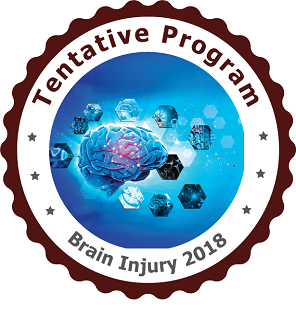
Reza Amani
Isfahan University of Medical Sciences, Iran
Title: Vitamin D levels and body antioxidant status in ischemic stroke patients: A case-control study
Biography
Biography: Reza Amani
Abstract
Background & Aim: Stroke is the second cause of death among elderly people and oxidative stress plays important role in brain damage after stroke. The aim of this study was to evaluate the status of Vitamin D, antioxidant enzymes, and the relation between the ischemic stroke patients.
Materials & Methods: This case–control study was carried out on 36 patients with ischemic stroke patients and 36 matched subjects as controls. Intake of fruits and vegetables, exposure of sunlight, serum lipid profile, concentrations of serum Vitamin D, activities of serum superoxide dismutase, and glutathione peroxidase enzymes were determined.
Results: Severe Vitamin D deficiency was seen in 30% of the patients versus 11% of the controls (P<0.05). Consumption of fruits and vegetables was lower in patients than that of controls (P<0.05). Activities of antioxidant enzymes and intake of fruits were positively correlated in stroke patients (P=0.02). The most potent predictors of stroke risk were hypertension, high levels of low-density lipoprotein cholesterol (LDL-C) and history of cardiovascular disease (CVD) (odds ratios: 3.33, 3.15, and 3.14, respectively, P<0.05 for all). There was no association between 25(OH) D levels with activities of serum antioxidant enzymes and lipid profile in the two groups.
Conclusion: Ischemic stroke patients have higher prevalence of severe Vitamin D deficiency and lower intakes of fruits and vegetables. Intake of fruits was positive correlated to higher antioxidant enzyme levels. High levels of blood pressure, history of CVD, and high LDL‑C levels are the strongest predictors of ischemic stroke.

